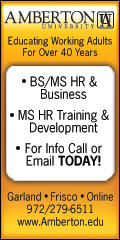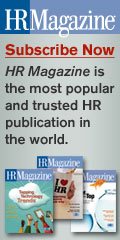
| Archives/Subscribe | Advertise | HR Matters | www.texasshrm.org |
Experts: Flexible Workplaces Should Rely on Social Media What does flexibility have to do with social media? Plenty. Social media can help employees stay engaged—particularly those who work remotely. That’s what conference attendees learned during a session at the inaugural Work-Life Focus: 2012 and Beyond Conference held recently in Washington, D.C. Sponsored by the Society for Human Resource Management (SHRM) and the Families and Work Institute (FWI), the conference served as a chance for HR professionals to learn how to implement flexible work options into their workplaces. "Deloitte is embedding social media into every aspect of our talent life cycle," Patricia Romeo, a former HR generalist and leader at Deloitte in Cincinnati, told those attending the session, which she co-led with her colleague, Joseph Press, a social media expert at Deloitte in New York. Each works in HR. For example, when potential employees interview at the company—where the average employee age is 28—they are given links to the profiles of employees on DStreet, Deloitte’s internal social network. "This gives potential employees the opportunity to help them connect on different levels—personal levels [in order] to help people feel at home when they come to work," she said. DStreet, which Deloitte launched in 2008, looks a lot like Facebook. Each employee gets a personal landing page, complete with a photo gallery, an "about me" section and a blog. Their page includes personnel data from the firm’s records and other information. DStreet has online communities in which employees can engage in conversations or share information about like-minded topics. There, they can collaborate on documents, seek assistance or obtain advice; identify experts; share knowledge; engage in professional development activities, and network. Romeo and Press told attendees that social media are rapidly becoming the be all and end all for employer and employee communication—particularly for those who are working remotely. RIP E-mail "E-mail is the place where knowledge goes to die," Press said. Recent studies show that companies are turning to social media. In a recent SHRM survey, 68 percent of HR professionals polled reported that their companies were using social media for external communications, recruiting and marketing to engage clients, potential customers and employees. And in a study by global professional services firm Towers Watson, a majority of companies worldwide say they are becoming more conversant about connecting with social media tools and keeping their workforces informed. More than two-thirds planned to increase their use of such tools in 2012. "[Instant messaging] IM is another powerful tool to cut down on e-mail and give a sense of community to remote workers," Press said. The pair added that having remote employees use such social media sites as Facebook, Twitter, Yammer, LinkedIn and DStreet allows them to stay connected. These connections have helped fuel collaboration and innovation. Technology and accessibility have changed the world of work. Flexible work options are the natural progression of this change. However, better employee engagement is going to be necessary. "What we’re seeing more and more is the need for HR ... to be on the forefront of driving work-flex programs," Press said. Social media and its inherent way of making people connect on a personal level can help build a bridge to better employee engagement, he added. Aliah D. Wright is an online manager/editor for SHRM. Tweet with her @1SHRMScribe. |
P.O. Box 8058
Tyler, Texas 75711
www.texasshrm.org • info@texassshrm.org • 214-354-8740

